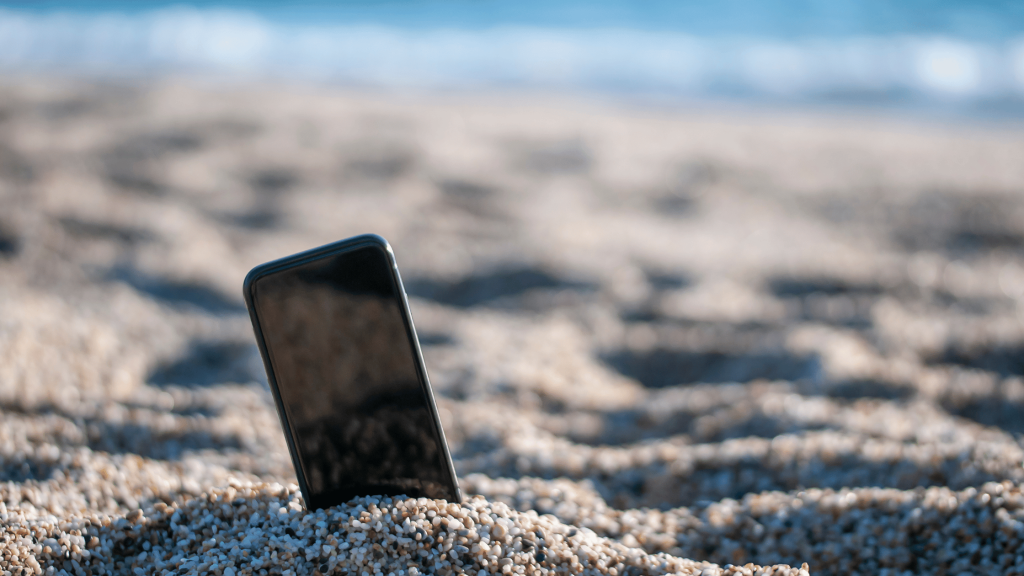Many people are counting the days until their holidays, while many others are already in the countdown phase to return. Without doubt, summer is an ideal time for the whole family to recharge their batteries, but sometimes it may not be so easy and time flies by very quickly. The key lies in maintaining a balance between rest, fun and wellbeing, which is possible if a healthy routine is followed with sleep, screen exposure and physical activity.
The long-awaited holidays arrive and, sometimes, it is difficult to enjoy them. The reasons can be very diverse and have different connotations for adults, young people and children, but what is clear is that they are a necessity for everyone’s physical and mental wellbeing. The specialists of the Child and Adolescent Mental Health Unit at HM Nens Hospital set out a series of recommendations and guidelines to follow, which, although each person is different and has a unique reality that must be addressed in a specialised way, can nevertheless serve to help raise awareness of each individual’s situation and provide tools to face it and manage to enjoy the summer.
To achieve this, it is very important to be aware that not all of us are the same and, therefore, it is necessary to avoid comparing ourselves with others. In this sense, one must be very cautious about what is seen on social media because, as Silvia Fernández, head of the Child and Adolescent Mental Health Unit at HM Nens, explains, they reflect “an ideal world, often unattainable. They only show the good things that happen to us, how much fun we are having, how wonderful that swimsuit or bikini looks, how great we look with certain make-up or how pleasant a particular terrace is, but no one shows their problems and ‘shadows’, and we all have them. This aspect is especially important for adolescents, who at this time of year may feel more alone when separated from their usual circle of friends or when enjoying fewer leisure activities.”
Time alone
It is essential not to have excessively high expectations of what we will do during the holiday weeks or to want to make the most of them, since this may generate unnecessary anxiety that prevents us from enjoying the moment. It is advisable to adjust to each person’s reality and to know how to ‘listen’ to oneself in order to do what is really needed and desired. Remaining constantly active and sharing time with family and friends is not an ‘obligation’, and spending time alone allows us to think and to reformulate our priorities and motivations, which will enable us to return with clearer ideas and objectives.
On the other hand, holidays involve a break from the work routine and health can be affected due to the drop in defences caused by the decrease in cortisol resulting from stress, which makes it easier to contract some illness. “Stress is a set of physiological reactions that are triggered when a state of nervous tension is experienced and it impacts the immune, nervous and endocrine systems, activating the biochemical mechanisms existing between them. At the outset, stress is not bad, it can even be beneficial; the problem arises when stressors are repeated or prolonged over time, causing the body to remain in constant alert,” explains Silvia Fernández.
Among the youngest, in the same way as with young people, summer can lead to greater loneliness or lower quality leisure time, causing an increase in screen use and sedentary behaviour.
Healthy routines
To protect the immune system and to ensure that free time is truly productive and enjoyable, the head of the Child and Adolescent Mental Health Unit at HM Nens Hospital believes that “as far as possible, everything that we do that is perceived as stressful must be eliminated and, if this is impossible, help should be sought. It is important to follow a healthy and balanced diet, to practise sport regularly or to do meditation exercises, to try to maintain good social relationships and to have adequate rest.”
To achieve balance in children and young people between rest, fun and wellbeing during the holidays, following a series of healthy routines can be key:
- It is important to sleep the appropriate number of hours in a relaxed environment without screens from 30–60 minutes before going to bed. It is advisable to maintain regular times for going to bed and waking up, although one should be a little more flexible than during the school year. Children should sleep between 9–12 hours if they are aged between 6 and 12 years, and adolescents around 8–10 hours.
- It is recommended to perform moderate or intense physical exercise for at least one hour a day because it helps to clear the mind and improve mood by reducing stress. Furthermore, it strengthens bones, muscles and the heart and fosters creativity and socialisation. It should be a fun activity, so walking, cycling, dancing or swimming are valid options. For children, it does not have to be structured: playing, running or jumping are also counted.
- Conscious and not excessive use of screens is advised, as they negatively affect sleep, increase irritability, reduce emotional performance, and promote sedentary behaviour and social isolation. Clear daily usage times must be established, promoting quality, educational or creative content. It is important to avoid screens at the beach or pool or during meals and shared time with friends. It is ideal to combine their use with other activities such as reading, cooking, painting or playing outdoors, and bearing in mind that adults are the ones who must regulate the use of devices, they must lead by example in following the guidelines set, as parents are their children’s role models.
Being on holiday does not mean leaving routines aside, but rather being flexible and adjusting them. A good balance between rest, play, movement and technology will encourage a calmer and more serene return to work and school.

